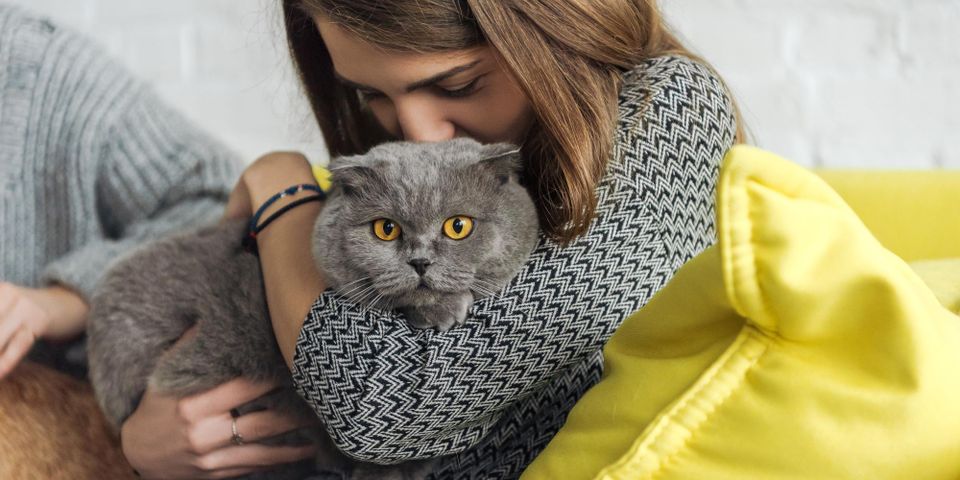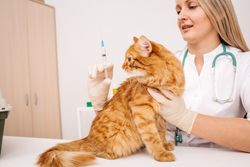What Pet Owners Should Know About Feline Leukemia

Scheduling regular veterinarian checkups is the key to keeping your cat healthy. Your animal will receive vaccinations that protect against numerous life-threatening viruses, including feline leukemia. Learn more about how the disease is contracted, symptoms, and treatment options here.
Causes & Symptoms to Keep on Your Radar
Two to three percent of all cats in the United States have feline leukemia. Cats cannot pass the virus to humans or other animal species. As feline leukemia is transferred through saliva and nasal mucus, cats can become infected while fighting or grooming each other.
The virus is also shed in feces and urine, which means it could be transferred from one cat to another from a shared litter box. In some cases, an infected mother can pass along feline leukemia to kittens before birth or while nursing.
 Examine your pet for any changes in their appearance, as cats with feline leukemia can experience weight loss due to loss of appetite. The once shiny, silky coat might be dry and dull, too. Gently opening your cat’s mouth, examine gums from paleness and inflammation. While touching your pet’s head, feel for swollen lymph nodes near the jaw.
Examine your pet for any changes in their appearance, as cats with feline leukemia can experience weight loss due to loss of appetite. The once shiny, silky coat might be dry and dull, too. Gently opening your cat’s mouth, examine gums from paleness and inflammation. While touching your pet’s head, feel for swollen lymph nodes near the jaw.
Treatment Options & Preventative Measures
If you notice any of the above systems, take your cat to a veterinarian for a thorough examination. During an ELISA test, a doctor will draw blood and examine the sample for virus proteins that indicate the infection is in its early stages. An IFA blood test is also conducted to look for late-stage markers of infection.
Depending on the strength of a cat’s immune system, their body might be able to eliminate the virus naturally. Otherwise, a veterinarian can help manage anemia, secondary infections, and other conditions linked with feline leukemia.
Restricting access to the outdoors will keep your cat away from other animals and reduce the risk of contracting the virus. Having all pets vaccinated will also prevent them from contracting the disease.
To maintain your cat’s health, schedule a routine checkup at Rolling Hills Veterinary Hospital. With two locations in Columbia, MO, the veterinary hospital provides core and non-core vaccinations, spaying, neutering, and additional solutions, which you can view online, to help animals in Boone County enjoy longer, happier lives. Call (573) 449-3791 for an appointment at the Keene Street location and dial (573) 449-7387 to reach the Buttonwood Drive facility. Let other pet parents know how the veterinarians have cared for your cat on Facebook.
About the Business
(5 reviews)
Have a question? Ask the experts!
Send your question

